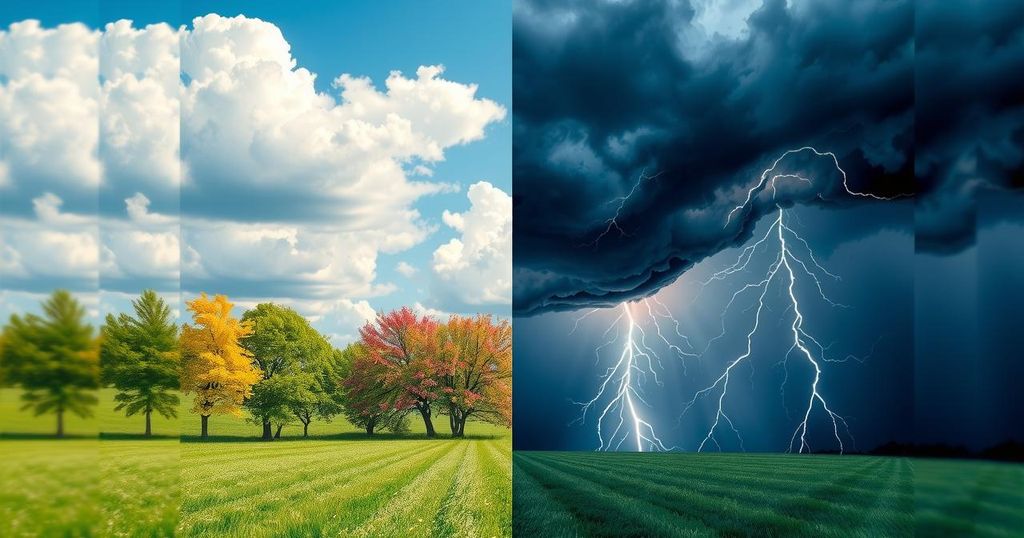Attribution science is analyzing the impact of climate change on extreme weather events, such as wildfires and floods. This field, developed over the past two decades, assesses how much global warming influences specific incidents. Although helpful in understanding climate effects, issues such as data scarcity persist, complicating research and analyses.
As extreme weather events become increasingly severe due to climate change, attribution science has emerged to assess the role of global warming in these incidents. This rapidly developing discipline enables experts to analyze specific weather events, determining if human-induced climate change has heightened their likelihood or intensity. Although established for two decades, attribution science still faces challenges due to incomplete data in some regions.
Attribution studies can provide critical insights post-disaster, helping governments, industries, and citizens comprehend the climate’s role in these extreme events. Robert Vautard, a leading scientist from the UN’s climate panel, emphasized the significance of these studies for decision-makers and researchers alike, contributing to an improved understanding of climate models. Such analyses may increasingly serve as evidence in legal disputes regarding climate responsibility.
Key inquiries within this field revolve around whether climate change has influenced specific events such as floods or heatwaves. The World Weather Attribution (WWA) group leads this research, utilizing computer models to compare real-world weather against simulations assuming a pre-industrial climate. Their studies have illustrated the impact of climate change on wildfires in Los Angeles, where global warming has significantly increased the likelihood of such conditions.
Various organizations are engaged in attribution research, including the UK’s Met Office and ClimaMeter. While the former employs rigorous climate simulations, ClimaMeter acknowledges its experimental nature and utilizes historical data and advanced AI. However, it cautions against its effectiveness for unique extreme events, illustrating the diverse methodologies employed in this research area.
Despite significant advancements, it is essential to recognize that climate change is not the sole factor influencing these extreme weather events. WWA likens this relationship to smoking leading to lung cancer—a contributing factor rather than a direct cause. Furthermore, researchers analyze socioeconomic factors, such as infrastructure quality, that exacerbate the impacts of weather-related disasters.
Although there is a growing recognition of climate change’s influence on extreme weather events, the complexity of certain phenomena, such as droughts and forest fires, necessitates a broader analysis of contributing factors. The scarcity of observational data, particularly in regions like Africa, complicates these studies. Experts are advocating for systematic approaches to improve consistency in data usage, which is crucial for future legal proceedings related to climate impacts.
The article discusses the emerging field of attribution science, which investigates the interconnectedness of climate change and extreme weather occurrences. With increasing global temperatures, the occurrences of natural disasters such as wildfires, floods, and storms are becoming more prevalent and severe. This scientific approach aims to assess how much of these we can attribute directly to human-induced climate change, despite challenges like limited data availability in various regions, which impacts the reliability of the findings.
In conclusion, attribution science is crucial for understanding the relationship between climate change and extreme weather events. Through rigorous studies, researchers can better inform policymakers and the public about the role of climate change in specific disasters. While challenges remain regarding data scarcity and the complexity of weather phenomena, ongoing advancements in this field will enhance our understanding and potentially guide legal accountability in climate-related crises.
Original Source: www.france24.com






